Sacred Chickens
Menu
SACRED CHICKENS
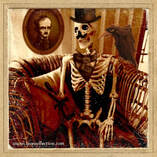 Uncle Morty’s Halloween Journey by Mortimer R. Wolcott This week the Netherworld is preparing to celebrate the day when the barriers break down and the disembodied, the undead, the restful and the wakeful, can cross back again to see the world of the living. The embodied call it “Halloween.” But I, your Uncle Morty, cross back to the land of the dead. It is the one day I am allowed to visit my gardens, my beautiful shadow home. Alas, I have been unable to complete the décor due to my present assignment among the flesh-covered. I have been banished from my beloved afterlife. Though they might be interesting, the crimes for which I suffer my penance will not be particularly comprehensible to my embodied friends. Suffice it to say that, for me, Halloween is a one-day vacation from the vacuous world of the living. The boundary is already becoming hazy and I can almost see the old homestead now, tall and thin, multi-gabled - diamond windows and diaphanous draperies drifting gently in the moonlight, windows open to the frosts of autumn no doubt, just as I left them last year. My old house awaits its occupant. Perhaps it pines for the one night of the year the blue flame fills the fireplace, just as I do.
0 Comments
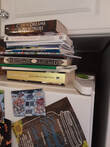 Fall Recommendations by Sacred Chickens Staff Fall is my favorite time of year. Comfy sweaters and warm coats, changing leaves and dark nail polish. And books. Lots of books. (Ok, besides the coats and sweaters that’s how I am most of the year but fall makes it all extra special!) Now that the cold weather seems to be here to stay, it seems about time for some fallish books. Here are some of our favorite books to curl up with under a large blanket!
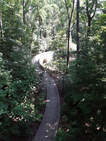 Gardens I want to Visit by Jarad Johnson Since it is fall, the gardening season is winding down. So, to distract himself, Jarad thought that he’d talk about other gardens he wants to go. Writers and gardening seem to go hand in hand, so many of his dream gardens are also the gardens of famous writers!
Babylonstoren- Located in Africa, dating back to 1692 and one of the oldest Cape Dutch farms, this is a place with a garden of about 8 acres that supplies several restaurants and a winery. It has fruit and vegetables, a healing garden and a spice garden. Overall, it’s a very beautiful and peaceful place. It also has a hotel, and I’m afraid if I were to go, I’d be gone for a very long time.  Horror Stories Author, Liz Phair Review by Roy Peak "All we have in common is the horror in our lives." Alan Moore, writer. "It’s hard to tell the truth about ourselves. It opens us up to being judged and rejected. We’re afraid we will be defined by our worst decisions instead of our best. Our impulse is always to hide the evidence, blame someone else, put the things we feel guilty about or that were traumatizing behind us and act like everything is fine. But that robs us of the opportunity to really know and care about one another. It closes a door that could lead to someone else’s heart. Our flaws and our failures make us relatable, not unlovable." Liz Phair, from her book Horror Stories. 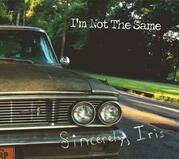 I'm Not the Same Author, Sincerely, Iris by Roy Peak One of my favorite musical surprises from a few years back was an EP titled The License Plate Sessions by musician Todd Murray, who goes under the moniker Sincerely, Iris. Dark, swirling, and moody—the songs written and played bottle-neck style on a four-string guitar made from the license plate of one of Murray's cars—they grabbed ahold of me and wouldn't let go. A few years have passed since then, and now from Sincerely, Iris we get I'm Not the Same, a full length release with plenty of dark and distorted tones, mournful vocals, and some rather majestic passages.
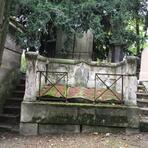 Gardens and Cemeteries by Julie Carpenter I’m supposed to be blogging about autumn gardens, or creepy gardens, in honor of the month of October, but I’m having a hard time because instead I’m thinking about cemeteries. Which is weird, I know. But bear with me for a minute. Some of the most beautiful and moving gardens I’ve been in have been…cemeteries.
When we went to Paris, one of my favorite excursions was to Père Lachaise Cemetery, and it felt very much like an odd sort of garden, the dead planted like the trees with the moss growing on their stone house and roots tangling around them, finally and truly becoming part of nature. There was a light rain; crows were cawing above us in the trees. It was the perfect autumn garden, as sleepy and comforting and sorrowful as the smell of the leaf mold on moss as the trees drop their foliage. Old cemeteries where ivy and moss crawl up the mausoleums and tombstones, eating the sharp edges of memory, those with trees and shrubs, seem perfectly right to me for fall. They have the serenity of a garden, coupled with the restfulness of boundary, an end in sight. 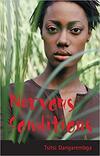 Nervous Conditions Author, Tsitsi Dangarembga Review by Jarad Johnson I’m taking a course on narratives in African Literature this semester, and part of that means reading books by authors that probably would not normally fall under my purview. Part of being a reader is, by default, being a lifelong learner, and I’m very pleased when I get exposed to new ideas, cultures, and experiences…one of the reasons I took this class (it’s also taught by one of my favorite teachers). The course focuses on narratives, which is a topic that this blog likes to focus on as well.
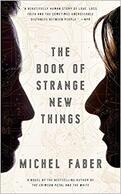 This is a book that I picked up on a whim when I was at the library last week. I had heard very good things about it, and I decided to give it a try. Going into the book, I knew it was a science fiction story about a pastor who travels to another world to preach to the native population on that planet while Earth descends into chaos. This did not sound like it was something I would enjoy, but several reviews said it wasn’t a novel about religion, so I decided to try it anyway.
|

Click Photo above to buy ebook or paperback from Amazon.
Here's the link to Barnes and Noble Or order through your favorite independent bookstore! Categories
All
|
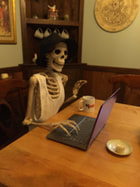
 RSS Feed
RSS Feed